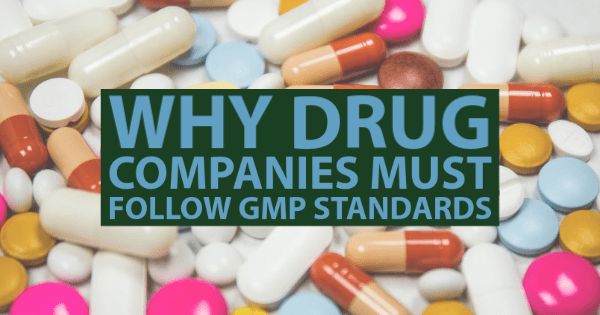
The American pharmaceutical industry is one of the biggest in the world. Due to the fact that the United States exhibits a greater acceptance of pharmaceutical products than many countries, and even has a booming pharmaceutical sales industry, it's clear that this particular industry can withstand a lot of stress, including that of the current pandemic. However, it's not without its particular concerns.
Pharmaceutical product orders may seem to be easily fulfilled; however, these products are made within laboratories before they reach pharmacies or human hands.
While a laboratory is often viewed as an inherently sanitary site, in fact, they can be prone to contamination just like any other production location. For that matter, when laboratories do not contain problems, contaminated products can potentially hit the market.
The distribution of damaged or low quality products is always an issue, no matter what the product itself is. But damaged or contaminated pharmaceutical products are risky in another manner entirely. Consumers can be hurt, or even killed through the distribution of faulty pharmaceutical products.
Therefore, it's crucial that pharmaceutical laboratories are kept as clean and up to date as possible. How does this occur? Ideally, through GMP standards. If GMP quality control is not properly implemented, laboratories can become at risk of being shut down. Therefore, it's important to explore these particular products.
What Does GMP Stand For?
GMP stands for Good Manufacturing Practice. Essentially, GMP is what manufacturers refer to in order to follow the industry guidelines set in place.
GMP is used as a form of quality control, and ensures that products are manufactured in a manner that is safe and clean, resulting in the most uniformly high quality products possible. With that being said, it may not be immediately clear that GMP quality assurance applies to the pharmaceutical industry, just as it applies to other forms of manufacturing.
However, GMP is responsible for the clean room standards in most pharmaceutical laboratories today. There are potential consequences to the violation of GMP standards, including the potential closure of laboratories. As around 810,000 people currently work in the pharmaceutical sector in the United States, it's important that pharmaceutical laboratories implement these standards.
How DO GMP Practices Keep Laboratory Employees Safe?
The fact is that the pharmaceutical manufacturing and storage process can be riskier than others. Fortunately, GMP standards also advise the best GMP storage guidelines, and exist to cover a wide variety of situations. For example, when laboratory employees are dealing with ICN radiochemicals, there is a particular standard to follow.
ICN radiochemicals can be used in a variety of different manners. In fact, ICN radiochemicals are applied to the process of drug discovery, as well as simpler plant sciences. However, these are nonetheless chemicals; and ICN radiochemicals and potentially pose risks if they are not handled correctly.
GMP standards exist so that employees know how to handle and store these products. For that matter, they ensure that clean rooms are prepared to contain such products, without the risk of contamination or harm to employees. Normally, the pharmaceutical manufacturing process is quite safe. However, this safety is only ensured if employees follow GMP standards.
What Happens If A Laboratory Or Company Violates GMP Standards?
There are steep consequences for companies or manufacturers that violate GMP standards. For example, if a drug manufacturer does not follow GMP standards, the product it delivers is essentially not the product that was originally ordered, because that product was ordered with the understanding the GMP standards would be followed.
Now, while GMP standards should be followed within every industry, there are particularly high stakes within the pharmaceutical industry. This is is because drugs can be paid for through Medicare, which means that it's being paid for, essentially, by the government.
Therefore, drug companies that do not follow GMP standards can be held liable under the False Claims Act. This could lead to the destruction of the company itself, and at the minimum significant consequences.
While GMP standards may seem potentially strict, they exist primarily to ensure the safety of employees and consumers alike. As long as they are followed, a drug company can be reasonably assured of its quality control.
